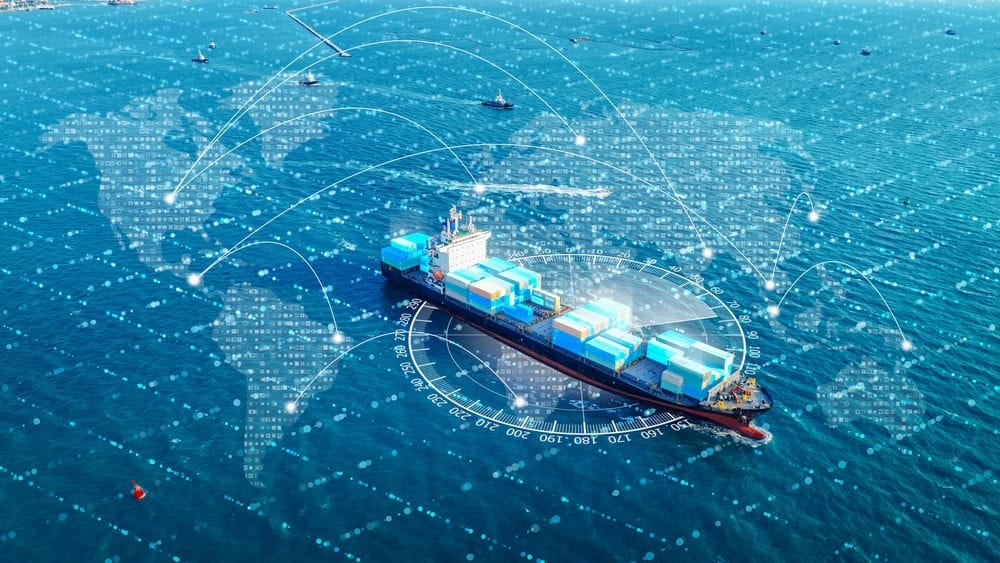Artificial intelligence (AI) in the shipping sector has the potential to usher in transformative era, yet it comes with a heap of challenges that demand attention from various stakeholders. As the shipping and logistics industry basks in AI’s potential to enhance efficiency, it must also remain vigilant against the unique risks posed by this evolving technology.
Cybersecurity Risks
The increasing reliance on interconnected systems aboard ships and at ports has made them tempting targets for cyberattacks. Without robust defenses, AI systems may be susceptible to manipulation, leading to navigation errors or even data breaches that could prove catastrophic. Imagine a vessel being hijacked—its navigation system diverted, leaving it vulnerable, while communication lines are severed, cutting off essential external assistance. Clearly, the logistics of safeguarding these networks are pivotal in the era of AI.
Regulatory and Legal Uncertainty
Another thorny issue is the lag in international maritime law concerning autonomous and AI-driven vessels. One can’t help but ask, who holds the responsibility in the event of an accident involving AI? Is it the shipowner, the software developer, or perhaps the operator? This murky territory creates profound implications for insurance companies and for the entire logistics industry, where clarity is paramount.
Data Quality and Availability
High-quality data is the lifeblood of effective AI operations. However, the industry often grapples with inconsistent and incomplete datasets from a variety of sources, whether from vessels, sensors, or ports. These inconsistencies can lead to misguidance, jeopardizing predictions and decisions vital to smooth logistics operations.
Integration with Legacy Systems
Many ships still cling to outdated technology that poses a significant barrier to incorporating modern AI solutions. This stymies adoption and creates considerable gaps between those vessels outfitted with advanced technology and traditional ships. The logistics sector must strike a balance between new innovations and existing systems to ensure a seamless transition.
Human-AI Collaboration
Crew members face the challenge of adapting to the presence of AI, demanding training to interpret its outputs. An over-reliance on AI tools could lead to a decline in essential seafaring skills. The industry must cultivate a symbiotic relationship between human decision-making and AI insights to maintain operational integrity.
Ethical and Social Impacts
While automation can streamline operations, it may also raise difficult questions surrounding employment. The potential reduction of certain maritime jobs evokes concerns over workforce displacement. In scenarios where life-and-death decisions loom, like collision avoidance, ethical dilemmas surface, necessitating thoughtful deliberation and comprehensive policies for handling technology deployment.
Environmental and Operational Risks
AI systems must be robust enough to withstand the extreme conditions of the maritime environment. From storms and saltwater corrosion to the potential for catastrophic malfunctions, the logistics sector faces an ever-present risk of significant environmental damage—think oil spills and groundings. Maintaining a keen focus on operational resilience is essential for safeguarding not just the environment but the industry’s reputation.
Cost and ROI Concerns
Finally, the formidable costs associated with AI investments—ranging from new infrastructure to extensive training—pose a daunting challenge for smaller shipping companies. A clear path to return on investment is vital for enabling these companies to keep pace with technological advancements in a highly competitive landscape.
In summary, while AI stands poised to drive transformative change in the shipping sector, the challenges outlined above require proactive measures, or else the industry risks greater complexities and headaches. It’s a classic case of “no pain, no gain.”
Conclusie
The integration of AI into the shipping industry is much like steering a ship through uncharted waters—exciting yet fraught with challenges. Recognizing the importance of addressing cybersecurity, improving regulatory frameworks, ensuring data consistency, and enhancing human-AI collaboration can significantly mitigate risks. As logistics operations increasingly rely on AI, platforms like GetTransport.com exemplify the importance of efficiency, affordability, and convenience in providing global cargo transportation solutions. With a suite of services tailored to meet diverse transportation needs—from office relocations to bulky goods delivery—GetTransport.com continues to symbolize ease in logistics.
To truly grasp the impact of these challenges, nothing beats firsthand experience. On GetTransport.com, users can arrange for cargo transportation globally at competitive prices, empowering informed decisions without unexpected costs or disappointments. The platform’s transparency and user-friendliness emphasize its unique advantages in the logistics marketplace. When transportation needs arise, consider the convenience and reliability of GetTransport.com to streamline your logistics. Boek je rit today to ensure that your needs are met with the utmost efficiency!

 Navigating the Challenges and Considerations of AI in Shipping">
Navigating the Challenges and Considerations of AI in Shipping">